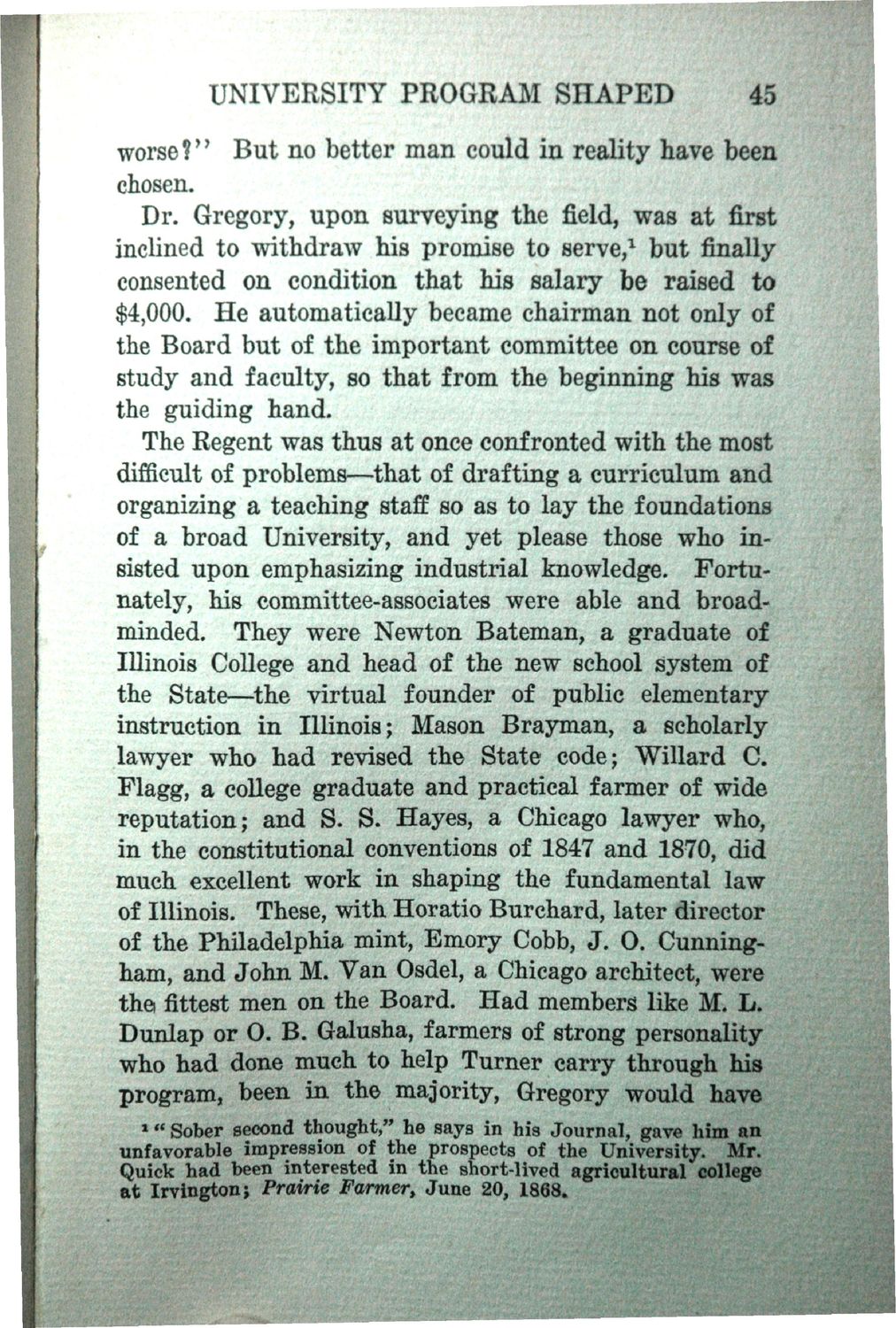| |
| |
Caption: Book - History of the University (Nevins)
This is a reduced-resolution page image for fast online browsing.

EXTRACTED TEXT FROM PAGE:
UNIVERSITY PR0GBAM SHAPED 45 worse?" But no better man could in reality have been chosen. Dr. Gregory, upon surveying the field, was at first inclined to withdraw his promise to serve,1 but finally consented on condition that his salary be raised to $4,000. He automatically became chairman not only of the Board but of the important committee on course of study and faculty, so that from the beginning his was the guiding hand. The Regent was thus at once confronted with the most difficult of problems—that of drafting a curriculum and organizing a teaching staff so as to lay the foundations of a broad University, and yet please those who insisted upon emphasizing industrial knowledge. Fortunately, his committee-associates were able and broadminded. They were Newton Bateman, a graduate of Illinois College and head of the new school system of the State—the virtual founder of public elementary instruction in Illinois; Mason Brayman, a scholarly lawyer who had revised the State code; Willard C. Flagg, a college graduate and practical farmer of wide reputation; and S. S. Hayes, a Chicago lawyer who, in the constitutional conventions of 1847 and 1870, did much excellent work in shaping the fundamental law of Illinois. These, with Horatio Burchard, later director of the Philadelphia mint, Emory Cobb, J. O. Cunningham, and John M. Van Osdel, a Chicago architect, were the fittest men on the Board. Had members like M. L. Dunlap or O. B. Galusha, farmers of strong personality who had done much to help Turner carry through his program, been in the majority, Gregory would have * I Sober second thought," he says in his Journal, gave him an unfavorable impression of the prospects of the University. Mr. Quick had been interested in the short-lived agricultural college at Irvington; Prairie Farmer, June 20, 1868»
| |